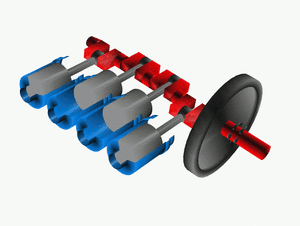Winds of Change
---------------
¶12. (C) Since the 1970's the military itself has been
perceived as the greatest threat to the throne and internal
security in Morocco, not surprising given Morocco's own
history and the broader context of the coup-ridden Middle
East and Africa. Of late, however, there is a general
perception that the relationship between the Palace and the
FAR is beginning to change to one of greater trust. The
King's growing confidence is partly signaled by a recent
significant increase in military spending, particularly for
modern hardware, although this is primarily a function of the
GOM's perceived threat from Algeria and the fact that it is
cost prohibitive at a certain point to maintain older
military equipment. The GOM increased the military's
operating budget to more than USD 2 billion in 2007,
significantly more than in previous years. Likewise, the FAR
is undergoing a significant modernization process, paying
over USD 2 billion for 24 F-16 aircraft and over USD 300
million for T-6 training aircraft from the U.S. The GOM has
commercially financed these transactions, thus far, but the
upfront payments have come from the treasury, which has also
committed to cover monthly payments. The King recently
allowed armed military flights north of Ben Guerir (located
approximately 200 kilometers south of Rabat), an act not
permitted in the past due to the King,s desire to keep the
military far away from the Palace in Rabat. The GOM is also
looking to make significant purchases of M-1 Abrams battle
tanks in the future.
--------------------------------
U.S.-Moroccan Military Relations
Strong but Could Be Better
--------------------------------
¶13. (C) In general, the U.S. and Morocco share a robust
military relationship with prospects for even closer ties in
the future. The health of the relationship is evidenced by
increased U.S.-Moroccan military training exercises and the
aforementioned military sales. Morocco has also increased
its activities under a partnership arrangement with the Utah
National Guard, which regularly deploys to Morocco to conduct
joint training and humanitarian relief operations. We have
submitted draft proposed language for the Moroccans to
consider for an Acquisition and Cross Servicing Agreement
(ACSA) and a Status of Forces Agreement (SOFA), and have
received comments on the ACSA draft from the GOM. In the
future, the Embassy hopes to see improvements in the FAR's
information sharing and accessibility to military units and
facilities with our Defense Attache Office. Although the FAR
regularly dialogues with our attaches, quality information is
lacking. The FAR also does not recognize the Embassy Attache
circle, an organization of Military Attaches from various
countries residing in Morocco who elect a president to
discuss issues of collective concern with the FAR. It is
apparent that the Palace continues to tightly control the
FAR's interactions U.S. and other foreign governments.
---------------------------
AFRICOM Viewed with Caution
---------------------------
¶14. (C) Previous interactions with GOM officials indicate
that military leaders are opposed to AFRICOM basing a
headquarters element in Morocco. However, Morocco has
offered to send a military liaison officer to the AFRICOM
headquarters in Germany and has offered to assist U.S.-led
efforts engaging with African countries. Morocco has also
approached AFRICOM representatives to solicit AFRICOM support
in providing chemicals needed for their cloud-seeding
operations in Senegal and providing logistics to assist with
a proposed locust control program.
-------
COMMENT
-------
¶15. (C) The Mission is optimistic that the U.S.-Moroccan
military relationship will continue to improve, but there are
potential speed bumps in future. We anticipate that
cooperative joint training exercises will continue to occur
at a robust pace, although the vast majority of this activity
will likely take place in Morocco because of continued
restrictions on the travel of FAR personnel. While we
anticipate that the Palace will continue to modernize the
military, with the notable possible acquisition of M-1 Abrams
tanks, we are increasingly concerned that Morocco, not used
to the high operating costs of these high end items (and
other budgetary pressures) may make it increasingly difficult
for the Moroccans to make payments on purchases. If payments
become a problem for the GOM, this could sour relations
temporarily. While we believe that there are some signs of
the King's increased confidence in the FAR, we believe that
the monarchy still calculates that the military represents
the biggest potential threat to the crown. FAR officers
will, therefore, continue to be distanced from policy making
input and restricted from engaging in detailed discussions
about Moroccan military strength and intentions with foreign
military officers, including our attaches.








